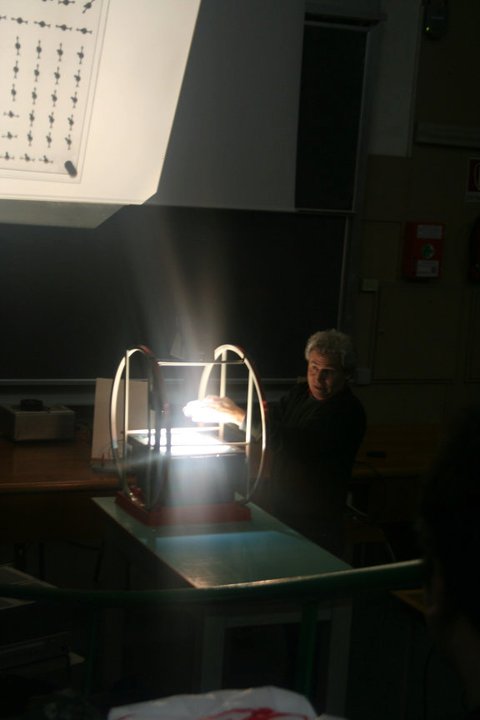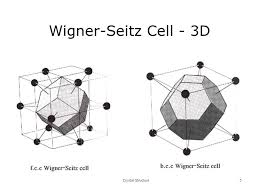
Dates of the exams in the Academic Year 2022/23:
(date format = dd/mm/yyyy) TBA= to be announced
[W]=written [O]=oral
date time place date time place
(W) 20/01/2023 14:00 Amaldi (O) 26/01/2023 9:00 Aula 5
(W) 06/02/2022 14:00 Amaldi (O) 09/02/2023 9:00 Aula 5
(W) 20/06/2023 9:00 Careri (O) 22/06/2023 9:00 Aula 5
(W) 11/07/2023 9:00 Cabibbo (O) 13/07/2023 9:00 Careri
[W] 08/09/2023 9:00 Amaldi [O] 12/09/2023 9:00 Aula 2
----------------------------
Dates of dedicated calls in the Academic Year 2022/23:
(upon request of those categories of students that are entitled to dedicated calls)
[W]=written; [O]=oral
[W] 10/05/2023 9:00 Cabibbo [O] 12/05/2023 9:00 professor's ofice
[W] 8/11/2023 17:00 Amaldi [O] 10/11/2023 9:00 professor's office
----------------------------
Consulting time:
On Tuesdays 2PM-4PM, room 110 of the department of Physics, Marconi Building
----------------------------
Textbooks:
- Solid State Physics, N. W. Ashcroft and N. D. Mermin - Saunders College Publishing international series
- Fundamentals of Condensed Matter Physics, M. L. Cohen & S. G. Louie, Cambridge University Press (strongly recommended for students with a curriculum in Condensed Matter Physics, for further reading)
- Introduction to Solid State Physics, K. C. Kittel - J. Wiley & Sons, New York
- Statistical Physics part 1 (Course of Theoretical Physics - volume 5), L. D. Landau and E. M. Lifshitz - Elsevier
- Statistical Physics part 2 (Course of Theoretical Physics - volume 9), L. D. Landau and E. M. Lifshitz - Elsevier
- Theory of simple liquids, J.-P. Hansen and I. R. Mcdonald, Academic Press
----------------------------
Practical infos on the exams:
(for more information follow the link FAQ ON THE EXAMS)
- There are two mid-term assessments during the course (lasting two
hours each). If both tests are passed with a score of at least 15/30
and an average of not less than 18/30, the student is exempted from the
written test for the entire academic year.
There are 5 complete calls (written and oral): two in the
January/February session, two in the June/July session and one in the
September session.
The written test (lasting three hours) includes two problems, each one
divided into several questions. The written test is passed with a score
of no less than 18/30 and is valid for the session in which it was
passed.
The oral exam focuses on the whole program. The final exam grade is
determined by
the written score (or the average of the mid-term
assessments) and the oral exam score.
Aim:
The
Condensed Matter Physics course aims at describing the main physical
properties of solids with regards to the electronic and lattice degrees
of freedom. The electron band structure and the vibrational
characteristics of solids will be studied in detail. In particular,
emphasis will be put on the electronic and lattice specific heat, the
transport properties and the main characteristics of semiconductors.
At the end of the course, the students will develop quantitative
reasoning abilities and problem-solving skills, which represent the
basis to study, model and understand the electronic and vibrational
properties of condensed matter. Such abilities and skills will be
tested periodically by means of mid-terms assessments and classwork.
Main topics:
Condensed phases: the liquid and the solid phase. Correlation function and form factor of a liquid. Crystal structures and Bravais lattice. Reciprocal lattice. X-ray diffraction and solid crystals, structure factor, atomic form factor. Born-Oppheneimer approximation. Lattice vibrations, phonons, specific heat (Einstein’s and Debye’s model, density of states). Electrons in solids, Bloch’s theorem. Band structure. Tightly and weakly bound electrons. Holes and effective mass. Electrons in metals and interaction with an electromagnetic field (dielectric response, metal transport properties): Drude’s and Sommerfeld’s models. Intrinsic and extrinsic semiconductors. Temperature dependence of charge carrier density. p-n junction.
 SERGIO CAPRARA
SERGIO CAPRARA